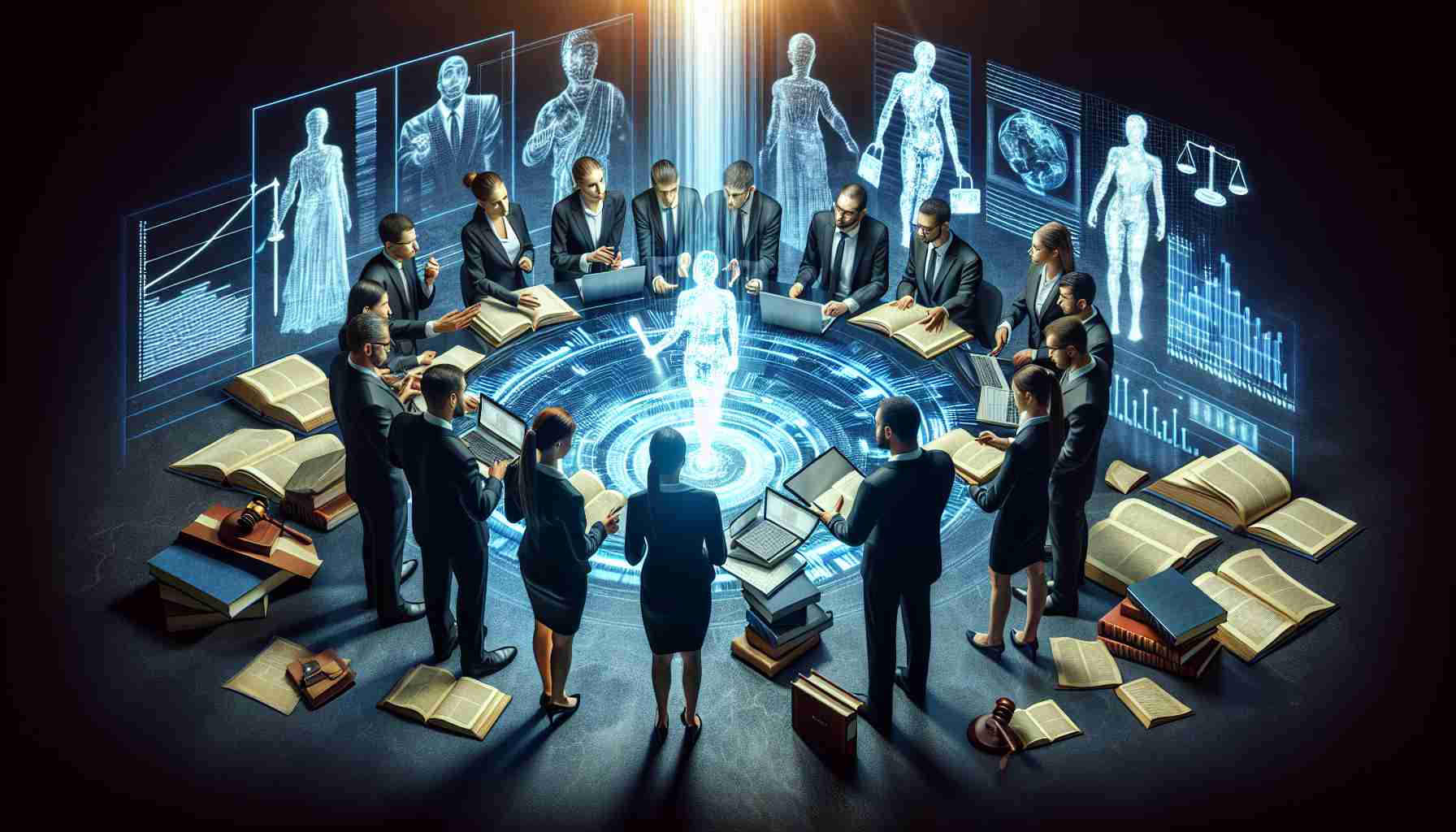Calling for a Legal Framework in the AI Arena
In a recent discussion with “Al Sharq,” legal professionals highlighted the significance of implementing legal mechanisms to oversee artificial intelligence (AI) applications across various sectors. They stressed the necessity for procedures within litigation and civil and criminal laws to address violators, specify the nature of the crime committed, identify the unlawful act, and determine the corresponding punishment.
The experts pointed out scenarios where an action is carried out by a robotic entity, emulating human voice and facial movements to commit a crime, which in reality is not performed by an actual person. They emphasized the importance of strict penalties against those who operate or program such machines, which can replicate human cognitive function.
Advocates Warn Against the Dark Side of AI
During the conversations, advocates warned against the allure of deceptive websites that appeal to youth with captivating programs, applications, and advertisements. The AI technology, which represents a global information revolution, is now being utilized by all sectors. The Shura Council deliberated on the challenges posed by the misuse of AI technologies.
AI Should Serve Society Responsibly
Mohammed Maged Al Hajarri, a legal expert, underscored that AI legislation should contain procedural mechanisms in civil and criminal laws to enhance oversight of AI practices. He described AI as a domain within computer science focused on solving cognitive problems, which includes learning, creativity, and image recognition. It is a technique that emulates human intelligence in performing tasks and is capable of improving itself based on collected data.
AI systems aim to efficiently complete complex human tasks, ranging from pattern recognition to problem-solving. While AI harbors benefits, it also has drawbacks, including harmful applications that involve deepfakes and voice imitation technology.
Legal Framework Needed for AI Developments
Experts like Dr. Yasser El Maniawy and Khalid Al Saour called for legal frameworks to regulate the use of AI in service sectors. They stressed that as AI continues to expand, it has become imperative to ensure proper regulations that hold users accountable for misuse, protect basic human rights, including personal data, and shield individuals from the pitfalls of technological abuse. AI, when harnessed responsibly, should serve to benefit humanity and not lead to malpractice.
Key Questions and Answers:
– What are the current challenges in regulating AI?
The challenges include the rapid pace of AI development, difficulties in assigning liability for AI’s actions, protecting personal data and privacy, ensuring transparency and fairness in AI algorithms, and preventing the use of AI for malicious purposes such as deepfakes or cyberattacks.
– Why is a legal framework for AI necessary?
A legal framework is crucial to establish accountability standards, safeguard human rights, protect against AI misuse, and ensure that AI development progresses in a way that benefits society as a whole.
– What might a legal framework for AI involve?
Such a framework could involve regulatory guidelines for the development and deployment of AI, mechanisms for resolving disputes arising from AI actions, data protection laws, and harmonization of international laws to address the global nature of AI technology.
Key Challenges and Controversies:
The main challenges center on balancing innovation with ethical considerations, privacy rights, economic impacts, and international coordination. The controversies often revolve around topics such as surveillance, algorithmic bias, job displacement due to AI automation, and the uncertain future of AI’s capabilities.
Advantages and Disadvantages:
Advantages:
– AI can lead to increased efficiency and accuracy in various sectors, from healthcare diagnostics to financial services.
– It has the potential to solve complex problems that are beyond human capability.
– AI can improve quality of life by automating mundane tasks, aiding in research, and enhancing user experiences.
Disadvantages:
– Unregulated AI can infringe on privacy and human rights through surveillance and data breaches.
– AI algorithms may perpetuate bias or make decisions that are difficult to interpret or challenge.
– Over-reliance on AI may lead to job displacement and economic inequality.
Relevant Links:
– Wired: Tech news site that often covers the latest issues in AI development and regulation.
– AI Now Institute: A research institute that studies the social implications of artificial intelligence and offers policy recommendations.
– Electronic Frontier Foundation: Organization that defends civil liberties in the digital world, including issues around AI.
Please note that the URLs provided here are for general domains that relate to the field of AI and its regulation, and that specific URLs for subpages are not included as per the instructions.

